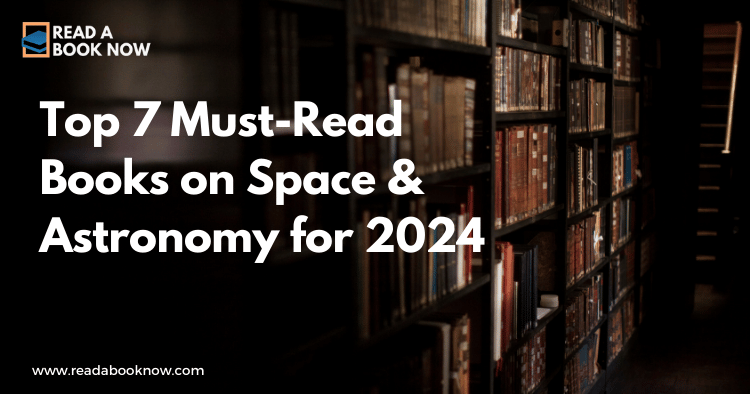Introduction
Space is an endlessly fascinating realm, full of mysteries and wonders waiting to be explored. Whether you’re a seasoned astronomer or a curious novice, there’s always something new to learn about our universe. With 2024 just around the corner, we’ve compiled a list of the top seven must-read books on space and astronomy that will not only expand your knowledge but also spark your imagination. Let’s dive into these captivating reads!
“Exploration knows no boundaries; the universe invites us to discover its secrets.”
1. “The Universe in a Nutshell” by Stephen Hawking
Stephen Hawking’s “The Universe in a Nutshell” is a stunning follow-up to his groundbreaking work, “A Brief History of Time.” In this book, Hawking simplifies complex concepts such as quantum mechanics and the theory of relativity, making them accessible to the general reader. With beautiful illustrations and engaging anecdotes, Hawking takes you on a journey through time and space.
Key Themes:
- The nature of the universe
- The possibility of time travel
- The role of black holes
This book is perfect for anyone eager to delve into theoretical physics without feeling overwhelmed. Its approachable tone makes it a great starting point for those new to the subject.
“Great minds think alike, but it takes a genius to simplify the complex.”
Learn more about Stephen Hawking’s contributions to science here.
2. “Astrophysics for People in a Hurry” by Neil deGrasse Tyson
If you’ve ever felt that astrophysics is too complicated, Neil deGrasse Tyson is here to prove you wrong. In “Astrophysics for People in a Hurry,” Tyson distills the essential principles of the cosmos into bite-sized chapters that are both informative and entertaining.
Key Themes:
- The Big Bang and the expanding universe
- Dark matter and dark energy
- The fate of the universe
This book is perfect for busy readers who want to grasp the fundamentals of astrophysics without getting bogged down by jargon. Tyson’s wit and charm shine through, making complex ideas easy to digest.
“Knowledge is power, but understanding is liberation.”
Check out Tyson’s work on the Universe and science education here.
3. “Cosmos” by Carl Sagan
No list of astronomy books would be complete without Carl Sagan’s classic, “Cosmos.” Originally published in 1980, this book remains a timeless exploration of the universe and our place within it. Sagan’s poetic prose and passion for science inspire readers to appreciate the beauty of the cosmos.
Key Themes:
- The evolution of life on Earth
- The search for extraterrestrial intelligence
- The interconnectedness of all things
Sagan’s ability to weave storytelling with science makes this book a must-read for anyone interested in the universe. It’s a masterclass in making science accessible and engaging.
“In all our searching, the only thing we’ve found that makes the emptiness bearable is each other.”
Discover more about Carl Sagan’s legacy and contributions to science here.
4. “Black Hole Blues and Other Songs from Outer Space” by Janna Levin
In “Black Hole Blues,” Janna Levin takes readers on a thrilling journey into the world of gravitational waves and the scientists who strive to understand them. This book beautifully balances science and storytelling, offering insights into the lives of the researchers behind groundbreaking discoveries.
Key Themes:
- The history of black holes
- The significance of gravitational waves
- The emotional journey of scientific discovery
Levin’s narrative style and vivid descriptions make complex scientific concepts relatable and understandable. This book is a captivating read for anyone interested in the intersection of science and human experience.
“Science is not just a body of knowledge; it’s a way of thinking.”
Learn more about gravitational waves and their discovery here.
5. “The Planets” by Dava Sobel
Dava Sobel’s “The Planets” is a lyrical exploration of our solar system. Each chapter is dedicated to a different planet, blending scientific facts with historical anecdotes and cultural references. Sobel’s unique approach brings the planets to life, making readers feel as if they’re journeying through space.
Key Themes:
- The mythology and history of each planet
- Scientific discoveries related to the planets
- The role of planets in our understanding of the solar system
This book is perfect for readers who appreciate a more narrative-driven approach to science. Sobel’s writing is rich and evocative, making it an enjoyable read for all ages.
“Every planet has its story; every story has its lessons.”
Explore more about the solar system from NASA here.
6. “A Brief History of Time” by Stephen Hawking
Another classic by Hawking, “A Brief History of Time” has captivated readers since its publication in 1988. This groundbreaking work addresses fundamental questions about the universe, such as its origin, structure, and ultimate fate.
Key Themes:
- The nature of time and space
- The quest for a unified theory of physics
- The concept of the universe’s beginning and end
Despite its challenging subject matter, Hawking’s engaging style makes this book approachable for readers from various backgrounds. It’s a perfect follow-up to “The Universe in a Nutshell.”
“The universe doesn’t allow perfection, but it does allow wonder.”
Find out more about “A Brief History of Time” and its impact on science here.
7. “The End of Everything (Astrophysically Speaking)” by Katie Mack
In “The End of Everything,” astrophysicist Katie Mack explores the various theories about how the universe might ultimately meet its end. From the Big Crunch to heat death, Mack presents these complex ideas with humor and clarity, making them accessible to readers.
Key Themes:
- Theories of cosmic destruction
- The fate of stars and galaxies
- The philosophical implications of our universe’s end
Mack’s engaging writing style and ability to explain intricate concepts make this book a fascinating read for anyone curious about the future of the cosmos.
“Understanding endings leads to a deeper appreciation of beginnings.”
Learn more about Katie Mack and her work in astrophysics here.
Conclusion
The universe is a vast and enigmatic place, and these seven books provide a gateway to understanding its wonders. Whether you’re seeking profound scientific insights or engaging storytelling, each book on this list offers a unique perspective on space and astronomy. So grab a cozy blanket, a cup of tea, and get ready to embark on an extraordinary journey through the cosmos!
“To explore the universe is to explore the very essence of existence.”
FAQs
1. What are the best beginner books on astronomy?
Books like “Astrophysics for People in a Hurry” by Neil deGrasse Tyson and “The Universe in a Nutshell” by Stephen Hawking are excellent for beginners due to their accessible language and engaging explanations.
2. Are there any books specifically for children?
Yes! Books like “There’s No Place Like Space: All About Our Solar System” by Tish Rabe are great for introducing young readers to astronomy concepts in a fun way.
3. How can I stay updated on new books in astronomy?
Following reputable science publishers and authors on social media platforms, as well as subscribing to newsletters from organizations like NASA, can help you stay informed about upcoming releases in the field of astronomy.
4. Where can I purchase these books?
You can find these books at major bookstores like Amazon, Barnes & Noble, or your local independent bookstore. Many of these books are also available in digital formats or as audiobooks.
5. Are there any online resources to supplement my reading?
Absolutely! Websites like NASA and The European Space Agency offer a wealth of information, articles, and educational materials that can enhance your understanding of space and astronomy.
Also Look For
If you’re interested in the broader context of literature that touches on themes of exploration and discovery, consider checking out 10 Timeless Science Fiction Classics You Must Read Today and 10 Must-Read Environmental Sci-Fi Books for 2024. These books can further ignite your imagination and expand your horizons about the universe and our place within it.



